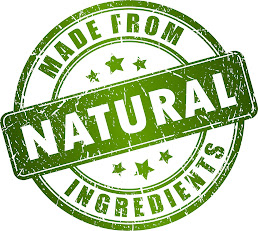But is this gap in knowledge due to the secrecy that often
comes with the food industry, or is it ignorance on both sides of the aisle, i.e.,
consumers think they shouldn’t have to take the time to understand how things
are made and what different claims mean, while processors might not believe it
is their responsibility to inform consumers? This gap causes a lot of confusion
and misinformation to be spread.
One common problem that comes from this gap are consumers who
get worked up over the ingredient lists and nutrition labels on so-called
health foods. Labeling requirements as they are, these so-called health foods
do contain quite a lengthy list of ingredients. Compounding matters, when
companies utilize ingredients fortified with other ingredients, they must all
be listed in order, creating long labels with ingredients that can sound
mysterious or be difficult to pronounce.
Recently, I came across a tweet about a surprise finding in
a box of cereal. The post was tweeted by a comedian who claimed to have found
shrimp tails in his Cinnamon Toast Crunch.
Based on how cereal is produced and the assumption that
General Mills’ quality-management strategies aren’t in question, I didn’t
believe it. Furthermore, anyone who fell for it must not have thought through
this very much. It had to be a joke, I thought.
Unfortunately, consumers who post social-media messages like
this — maliciously or not — often have little idea
the serious ramifications of their claims. Doing an entire recall for a social-media
practical joke would be a nightmare! The fact that some consumers truly
believed this comedian found shrimp tails in cereal, even for a second, is one
scary thought. Because of a select few consumers who didn’t do their own
research and/or use common sense, General Mills had to expend effort to manage a
phony crisis.
Even with external groups creating misleading claims about
products, it doesn’t mean processors aren’t always innocent of making unsubstantiated
claims. It amazes me the product claims a processor can make that have little
backing or value, even. I have friends who have been misled as to what a
“healthy” product is because of many of these nonsense claims, and such labels
have become a pet peeve of mine. The most annoying claim so far has been the
term “natural.”
For meat and poultry products to be labeled “natural,” the
USDA states they must be minimally processed and contain no added artificial
ingredients. If that wasn’t vague enough for you, for other foods, the term has
no clear meaning and is not even regulated by a government agency! Because of
that wide-reaching definition, there’s no perfect way for science to even show
that “natural” products are better for you (or not). Thus, they are marketing
tactics processors use to convince consumers they are being healthy, a deception
that increases the knowledge gap and mistrust the average consumer has with the
food processing industry.
All is not lost, however. There are TikTok, Facebook,
YouTube users who are bringing the science of food production to the forefront
for those consumers who will listen. Although I believe it is the consumer’s
duty to be more in the know about food processing, as a food industry employee,
I feel a sense of responsibility to debunk some of these myths and add
transparency wherever possible. Do you feel the same about educating your
consumers? Maybe you should …
— Sam Bibbs, Food Safety Consultant, sam@werfoodsafety.com


No comments:
Post a Comment